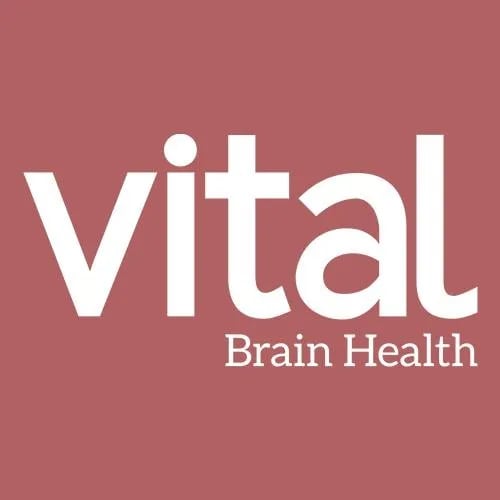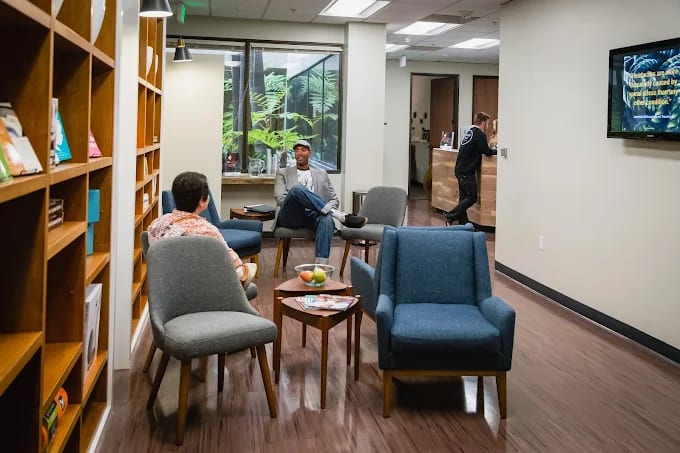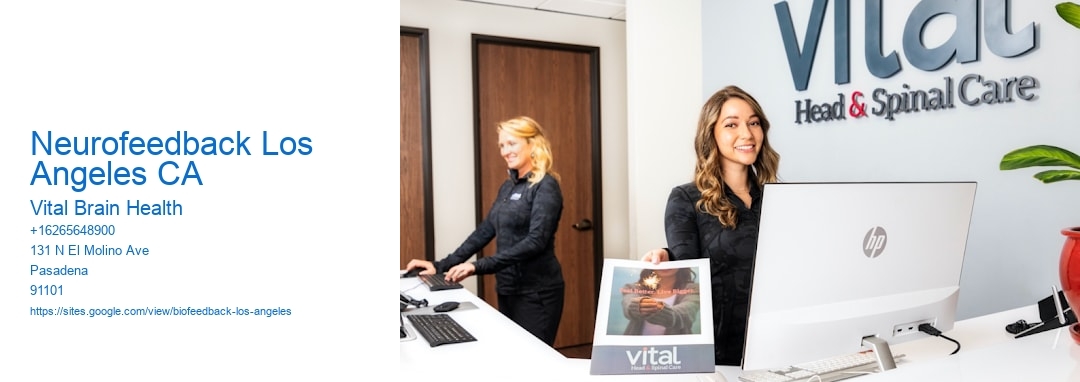Neurofeedback Treatment Centers in Los Angeles
Neurofeedback treatment centers in Los Angeles are at the forefront of an innovative approach to mental health care that is gaining traction across the globe. Biofeedback Los Angeles . Nestled in the vibrant and diverse communities of Los Angeles, these centers offer a unique blend of cutting-edge technology and personalized care, aimed at enhancing brain function and improving mental well-being.
Neurofeedback, also known as EEG biofeedback, is a non-invasive therapy that involves monitoring brainwave activity and providing real-time feedback to help individuals regulate their brain function. This treatment is based on the principle that the brain is capable of reorganizing itself and optimizing its own performance when given the right information. In Los Angeles, a city renowned for its emphasis on health and wellness, neurofeedback centers provide a sanctuary for those seeking alternative treatments for conditions such as anxiety, depression, ADHD, and PTSD.
The appeal of neurofeedback lies in its holistic approach. Unlike traditional therapies that often rely on medication, neurofeedback encourages the brain to heal itself, minimizing the risk of side effects. In Los Angeles, where residents are often health-conscious and open to innovative therapies, neurofeedback has found a receptive audience. The citys centers are staffed by highly trained professionals who are committed to helping clients achieve optimal mental health through personalized treatment plans.
Moreover, the cultural diversity of Los Angeles enriches the neurofeedback experience. The city's treatment centers cater to a wide array of clients from different backgrounds, ensuring that therapy is culturally sensitive and tailored to individual needs. This inclusivity enhances the effectiveness of neurofeedback, as it acknowledges and respects the unique experiences of each client.
In addition to their therapeutic offerings, neurofeedback centers in Los Angeles often provide educational resources and workshops to increase awareness and understanding of this treatment modality. By fostering an environment of learning and support, these centers empower individuals to take charge of their mental health and explore new pathways to healing.

In conclusion, neurofeedback treatment centers in Los Angeles represent a vital component of the city's mental health landscape. They offer a promising alternative for those seeking to improve their mental well-being through innovative, non-invasive methods. As awareness and acceptance of neurofeedback continue to grow, Los Angeles stands as a beacon of progressive health care, paving the way for broader adoption of this transformative therapy.
Benefits of Neurofeedback Therapy
Neurofeedback therapy, a cutting-edge technique that is gaining popularity in Los Angeles, CA, offers a host of benefits for individuals seeking to improve their mental well-being and cognitive functioning. At Vital Brain Health we help with los angeles adhd care program so you can smile a little more while finding balance in life This non-invasive therapy leverages the brains ability to self-regulate by providing real-time feedback about its activity, allowing individuals to make conscious adjustments to their brainwave patterns. The benefits of neurofeedback therapy are manifold, making it an attractive option for those looking to enhance their mental health naturally.
One of the most significant advantages of neurofeedback therapy is its potential to alleviate symptoms of various mental health conditions.
- Pasadena anxiety recovery plan
- At Vital Brain Health we help with los angeles adhd care program so you can smile a little more while finding balance in life
Additionally, neurofeedback therapy is highly personalized, catering specifically to the unique brainwave patterns of each individual. This customization ensures that the therapy is tailored to meet the specific needs of the patient, optimizing outcomes. The process is akin to a personal fitness program for the brain, where progress is continually monitored and adjustments are made to maximize benefits.

In Los Angeles, a city known for its fast-paced lifestyle and high-pressure environment, stress management is a crucial component of maintaining mental health. Neurofeedback therapy can be an effective tool in mitigating the adverse effects of stress. By promoting relaxation and enhancing the brains resilience to stressors, individuals often find themselves better equipped to handle the demands of everyday life. This can lead to improved work performance, better relationships, and a more balanced life.
Furthermore, neurofeedback therapy is not limited to those with mental health conditions. Many individuals seek it out as a means of personal development. The therapy can enhance cognitive abilities such as attention, memory, and creativity, making it appealing to students, professionals, and artists alike. By optimizing brain function, individuals can unlock their full potential and achieve peak performance in their respective fields.
In conclusion, neurofeedback therapy presents a wealth of benefits for individuals in Los Angeles, CA, and beyond. Whether addressing mental health disorders, managing stress, or enhancing cognitive performance, this innovative therapy offers a safe, effective, and personalized approach to brain health. As awareness and accessibility continue to grow, neurofeedback is poised to become an integral part of holistic mental health care in the modern world.

How to Choose a Neurofeedback Provider
Choosing a neurofeedback provider in Los Angeles, CA, can be a significant decision on your journey toward improved mental health and cognitive functioning. Neurofeedback, a non-invasive therapy that uses real-time displays of brain activity to teach self-regulation of brain function, has gained popularity for its potential benefits in treating conditions like anxiety, depression, ADHD, and more. However, not all neurofeedback providers offer the same level of expertise and care, making it crucial to select the right one for your needs.
First and foremost, consider the qualifications and experience of the provider. A reputable neurofeedback practitioner should have a solid background in psychology, neuroscience, or a related field. Look for providers who are certified by recognized organizations such as the Biofeedback Certification International Alliance (BCIA). Certification ensures that the practitioner has met specific educational and ethical standards, providing a level of assurance in their ability to deliver effective treatment.
Experience also plays a critical role. Providers who have been practicing for several years are likely to have encountered a wide range of cases and developed a nuanced understanding of how to tailor neurofeedback protocols to individual needs. It is advantageous to seek out practitioners who have experience treating conditions similar to yours, as this can enhance the likelihood of a successful outcome.
Additionally, consider the type of equipment and technology used by the provider. Neurofeedback relies heavily on advanced technology to monitor and interpret brainwave activity. Ensure that the provider uses up-to-date equipment and evidence-based protocols. Inquire about the specific types of neurofeedback offered, such as quantitative electroencephalography (qEEG) or low energy neurofeedback system (LENS), and how those methods might be suitable for your condition.
The approach and philosophy of the provider are equally important. During your initial consultation, observe whether the provider takes the time to understand your specific needs, symptoms, and goals. A good neurofeedback provider should offer a personalized treatment plan rather than a one-size-fits-all approach. They should also be transparent about what neurofeedback can realistically achieve and any limitations it may have.
Lastly, consider logistical factors such as location, cost, and the overall environment of the practice. The provider should be conveniently located within Los Angeles to facilitate regular visits, as consistency is key in neurofeedback therapy. Understand the cost structure and whether your insurance plan, if applicable, covers neurofeedback sessions. The practice environment should be comfortable and professional, fostering a sense of safety and relaxation during your sessions.
In conclusion, selecting a neurofeedback provider in Los Angeles, CA, requires careful consideration of qualifications, experience, technology, approach, and logistics. By taking the time to evaluate these factors, you can find a provider who is well-suited to support your mental health journey and help you achieve your desired outcomes with neurofeedback therapy.
Cost and Insurance Coverage for Neurofeedback in Los Angeles
Neurofeedback is an emerging therapeutic intervention that is gaining traction in Los Angeles, California. It is a non-invasive technique that involves training the brain to improve its function using real-time displays of brain activity. This alternative therapy is being explored for its potential benefits in treating conditions such as ADHD, anxiety, depression, and even chronic pain. However, one of the critical considerations for individuals interested in pursuing neurofeedback in Los Angeles is understanding the cost and insurance coverage associated with this treatment.
The cost of neurofeedback can vary significantly depending on several factors, including the providers experience, the location of the practice, and the specific condition being treated. In Los Angeles, a city known for its high cost of living, neurofeedback sessions can range from $100 to $250 per session. Given that a typical treatment plan can require anywhere from 20 to 40 sessions, the total cost can quickly add up, making it a significant investment for many individuals.
When it comes to insurance coverage, the situation can be somewhat complicated. Neurofeedback is still considered an alternative therapy by many insurance companies, which means that coverage is not always guaranteed. Some insurance plans may cover neurofeedback under certain conditions, especially if it is deemed medically necessary and is recommended by a healthcare provider. However, coverage can vary widely between different insurance providers and plans, and it often requires thorough documentation and, in some cases, a prior authorization process.
For those interested in exploring neurofeedback in Los Angeles, it is essential to check with their insurance provider to understand the specifics of their coverage. They should inquire about requirements such as referrals, documentation from healthcare professionals, and any potential out-of-pocket costs. It may also be beneficial to consult with neurofeedback practitioners who have experience navigating insurance claims, as they can offer valuable insights and assistance in maximizing insurance benefits.
In conclusion, while neurofeedback presents a promising avenue for treating various neurological and psychological conditions, prospective patients in Los Angeles must carefully consider the financial implications. By understanding the cost structure and thoroughly investigating insurance coverage options, individuals can make informed decisions about pursuing this innovative therapy. As the field of neurofeedback continues to evolve, there is hope that greater recognition and acceptance in the medical community will lead to improved accessibility and affordability for those who can benefit from it.
